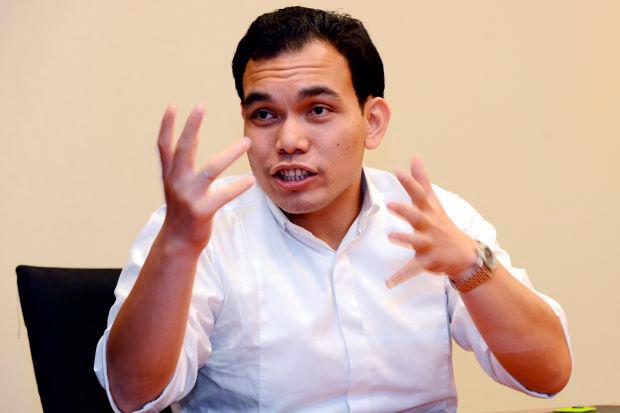PETALING JAYA: The government should be clear about what is unlawful when taking action against media organisations for publishing or airing reports it deems offensive.
In commenting on a report that broadcaster Astro was recently fined for airing a documentary by international news organisation Al Jazeera five years ago, lawyer Syahredzan Johan (pix) said the government has to state specifically which parts of the documentary was deemed offensive before acting against the producer and broadcaster.
The documentary, which was broadcast by Astro in 2015, centred around the murder of Mongolian model Altantuya Shaariibuu.
Al Jazeera courted controversy again this month when it aired another documentary, titled Locked Up in Malaysia’s Lockdown, highlighting the plight of migrant workers who had been required to stay indoors under the conditional movement control order (CMCO).
“The government, through its agency the Malaysian Communication and Multimedia Commission (MCMC), should highlight particular segments in the documentary that show Astro and Al Jazeera’s intent,” Syahredzan told theSun yesterday.
Under Section 211 of the Communications and Multimedia Act 1998, a content service provider (in this case the broadcaster and new agency that made the documentary) is deemed to have committed an offence by making content that is indecent, obscene, false, menacing or offensive with the intent to annoy, abuse, threaten or harass any party.
Syahredzan said the provision under that section is considered “too wide”.
“What is deemed offensive would differ from person to person. The worry now is whether the government will go after media agencies that publish content that puts it in unfavourable light.”
He added that the development was a reversal of a commitment to press freedom made by the Communications and Multimedia minister.
Another lawyer, Teeruvarasu K. Muthusamy, said the fine line between what is offensive and what is not is a hindrance to transparent journalism.
“It will instil fear among reporters of the repercussions of seeking the truth.”
Teeruvarasu pointed out that the people have a right to be aware of what goes on in the administration of the government and how its affairs are conducted.
“Transparent media coverage holds governments accountable for their actions, hence it is the government that should fear the media and not the other way around.”
He also urged the government to come up with a detailed guideline on what is permissible and what is not, and this guideline must be given to all media agencies.
Bar Council Constitutional law committee co-chair Andrew Khoo said such action would have a “chilling effect” on press freedom and national integrity as well as stifle transparency and accountability.
Independent political analyst Prof Jeniri Amir said such action by the government would have a “far-reaching” impact on reporting.
“It will send the wrong message to the international community,” he said, adding that the government always has the right to explain any unfounded allegation.
Singapore Institute of International Affairs senior fellow Dr Oh Ei Sun said the government would have to clarify whether all documentary films made in Malaysia will now have to be officially approved.
He agreed with Syahredzan’s view that the government should list which particular parts of a documentary is considered indecent, rather than issuing a blanket statement.
Read this story in our iPaper:









